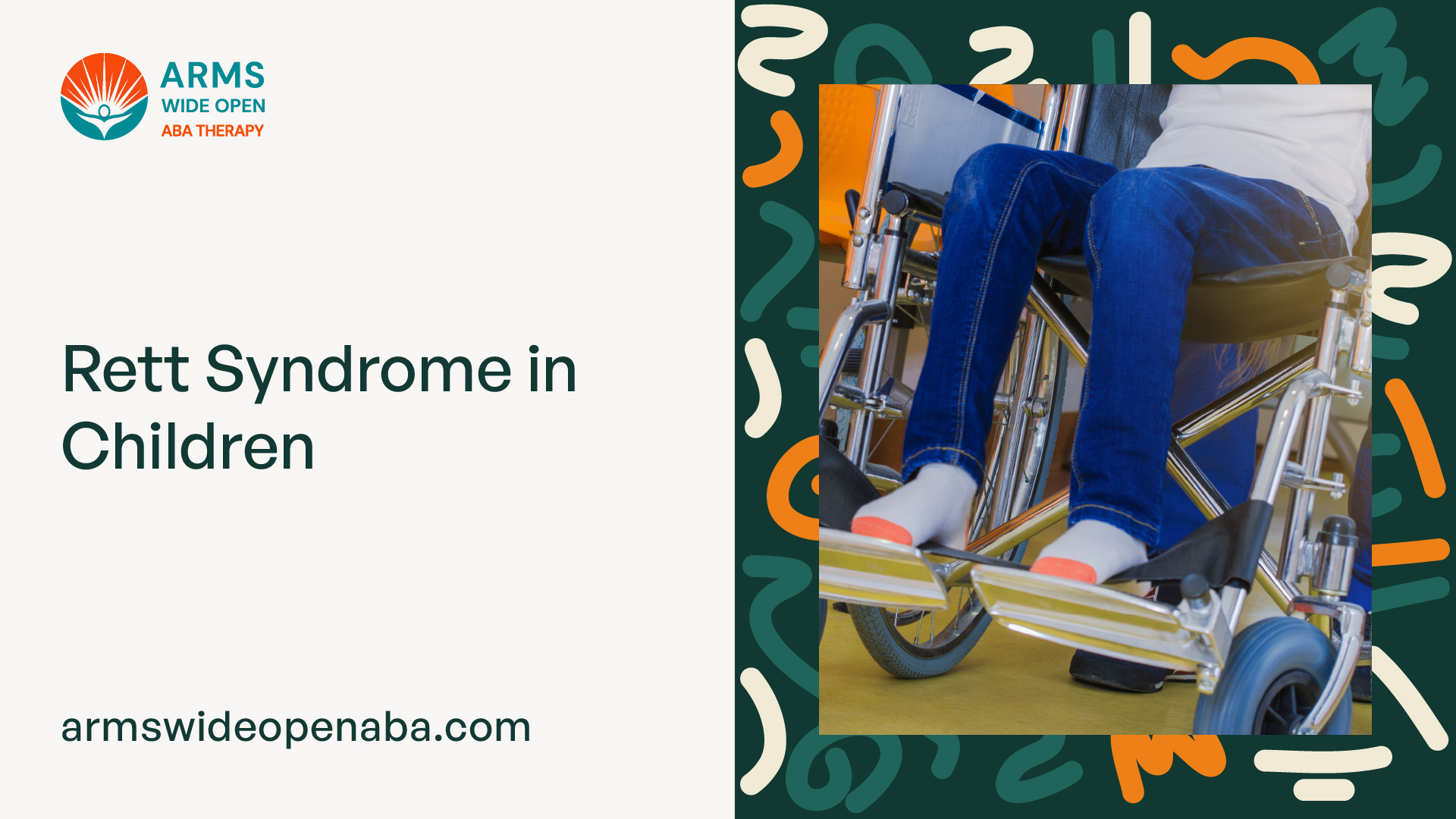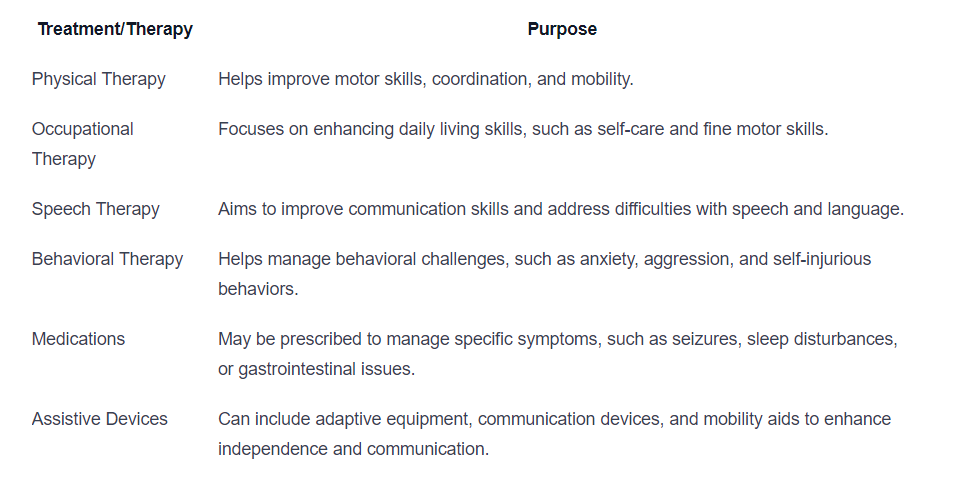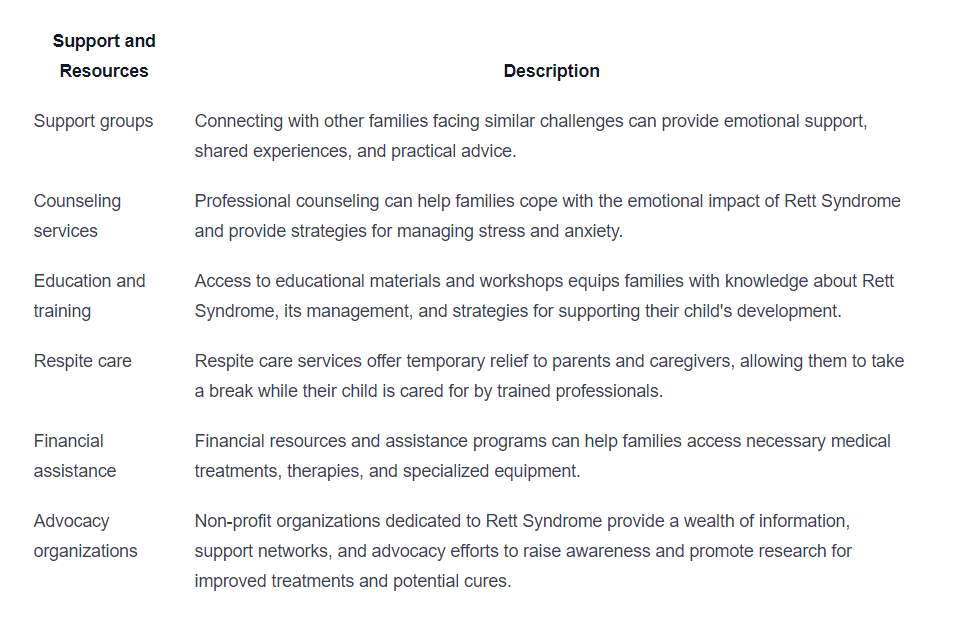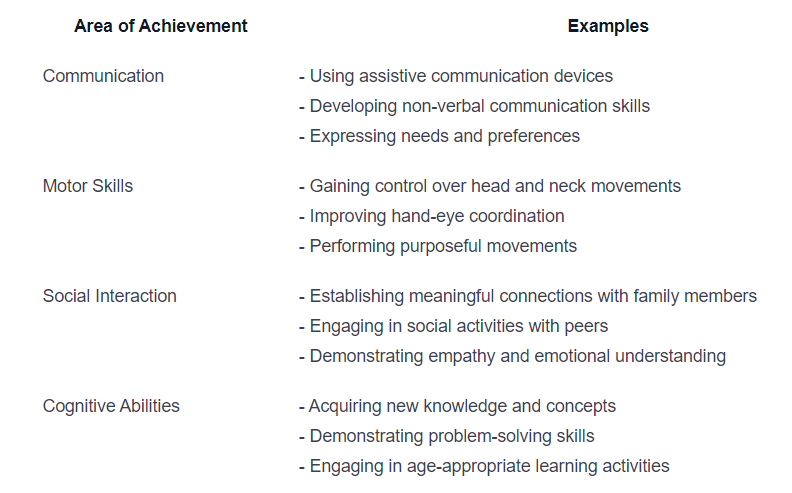Rett Syndrome in Children
Unveiling the challenges and triumphs of Rett Syndrome in children. Discover the support, care strategies, and milestones to celebrate!

Understanding Rett Syndrome in Children
Rett Syndrome is a rare genetic disorder that primarily affects girls. It is characterized by a range of physical, cognitive, and behavioral impairments. Let's delve into what Rett Syndrome entails and explore its potential causes and risk factors.
What is Rett Syndrome?
Rett Syndrome is a neurodevelopmental disorder that typically becomes apparent in early childhood. It is caused by a mutation in the MECP2 gene, which is responsible for producing a protein essential for normal brain development. The majority of cases of Rett Syndrome occur sporadically, meaning they are not inherited from parents.
Rett Syndrome is often associated with a loss of purposeful hand skills and the ability to speak. Individuals with Rett Syndrome may experience a regression in their motor and cognitive abilities, leading to significant impairments in daily life. It is important to note that the severity and progression of symptoms can vary widely among individuals with Rett Syndrome.

Causes and Risk Factors
The primary cause of Rett Syndrome is a mutation in the MECP2 gene. This mutation is believed to occur randomly and is not generally inherited from parents. However, in a small percentage of cases, the mutation can be inherited from a parent who carries the altered gene.
While the exact cause of the MECP2 gene mutation remains unclear, research suggests that it may be influenced by various genetic and environmental factors. Some potential risk factors include:
- Advanced paternal age: Older fathers may have a slightly higher risk of passing on the MECP2 gene mutation.
- X chromosome inactivation: Rett Syndrome primarily affects girls because the MECP2 gene is located on the X chromosome. In females, one of the X chromosomes is randomly inactivated in each cell, which can affect the severity of the disorder.
- Other genetic abnormalities: In rare cases, individuals with Rett Syndrome may have additional genetic abnormalities or mutations that contribute to the development of the disorder.
Understanding the causes and risk factors associated with Rett Syndrome is crucial for early detection, intervention, and ongoing management of the condition. By studying the underlying mechanisms of Rett Syndrome, researchers hope to develop targeted therapies and interventions to improve the quality of life for individuals affected by this disorder.
Signs and Symptoms
Recognizing the signs and symptoms of Rett Syndrome in children is essential for early identification and intervention. Rett Syndrome is characterized by a range of physical, cognitive, and behavioral symptoms that can vary in severity from one individual to another. In this section, we will explore the early signs and developmental milestones associated with Rett Syndrome, as well as the progressive symptoms that may emerge over time.
Early Signs and Developmental Milestones
Early signs of Rett Syndrome typically become noticeable between 6 and 18 months of age. It's important to note that these signs may not be evident in all children with Rett Syndrome and can sometimes be mistaken for other developmental delays. Some common early signs include:
- Loss of purposeful hand skills: Children may lose their ability to grasp and manipulate objects that they were previously able to handle.
- Slowed growth: There may be a deceleration in the rate of head growth, leading to a small head size compared to typical development.
- Social withdrawal: A decrease in social engagement and interaction with others may be observed.
- Motor abnormalities: Children may exhibit repetitive hand movements, such as hand-wringing or hand-to-mouth movements.
- Language and communication difficulties: Regression in language development and loss of previously acquired words or gestures may occur.
The loss of previously acquired skills is a hallmark characteristic of Rett Syndrome during this stage. Parents and caregivers may notice a regression in motor, social, and communication abilities, which can be distressing.
Progressive Symptoms
As children with Rett Syndrome grow older, they may experience progressive symptoms that further impact their functioning. These symptoms typically emerge between the ages of 1 and 4 years and may include:
- Mobility challenges: Children may develop difficulties with coordination, balance, and walking. Some may require assistive devices such as walkers or wheelchairs.
- Breathing abnormalities: Irregular breathing patterns, such as hyperventilation or breath-holding episodes, may occur.
- Seizures: Epileptic seizures are common in individuals with Rett Syndrome, and their frequency and severity can vary.
- Scoliosis: The development of an abnormal curvature of the spine, known as scoliosis, is observed in a significant number of individuals with Rett Syndrome.
It's important to keep in mind that the progression of symptoms can vary among individuals with Rett Syndrome. While some may experience a slower progression, others may have a more rapid decline in their abilities.
Tracking and monitoring these signs and symptoms can aid in the early diagnosis and appropriate management of Rett Syndrome. If you notice any of these signs, it is crucial to consult with healthcare professionals who specialize in developmental disorders to ensure proper evaluation and support for your child.
Diagnosis and Management
When it comes to Rett Syndrome in children, early diagnosis and management are crucial for providing the best possible care and support. In this section, we will explore the diagnostic process for Rett Syndrome and the various treatment and therapy options available.
Diagnostic Process
Diagnosing Rett Syndrome can be complex and involves a comprehensive evaluation of a child's medical history, physical examination, and developmental milestones. Healthcare professionals, such as pediatricians and neurologists, play a vital role in the diagnostic process.
To diagnose Rett Syndrome, the following criteria established by the American Academy of Pediatrics must be met:
- Normal development during the first six months of life.
- Loss of purposeful hand skills, such as grasping or reaching, and the emergence of repetitive hand movements.
- Loss of spoken language and social engagement.
- Development of characteristic motor abnormalities, including problems with coordination and gait.
- Presence of these symptoms between the ages of 6 months and 4 years.
It's important to note that genetic testing is also used to confirm the diagnosis of Rett Syndrome. This typically involves analyzing a child's DNA for mutations in the MECP2 gene, which is associated with the condition. Genetic testing can help provide a definitive diagnosis and aid in genetic counseling for families.
Treatment and Therapies
While there is currently no cure for Rett Syndrome, a multidisciplinary approach to treatment and therapies can help manage the symptoms and improve the quality of life for children with the condition. The primary goals of treatment and therapies for Rett Syndrome focus on maximizing functional abilities, promoting communication, and addressing associated medical and behavioral challenges.
Here are some common treatment and therapy options for children with Rett Syndrome:

It's important for families to work closely with a team of healthcare professionals, including pediatricians, neurologists, therapists, and educators, to create an individualized treatment plan tailored to the specific needs of the child. Regular monitoring and adjustments to the treatment plan may be necessary as the child grows and develops.
By implementing appropriate treatment and therapies, children with Rett Syndrome can experience improved functional abilities, enhanced communication skills, and a better overall quality of life. This multidisciplinary approach, combined with the love and support of family and caregivers, plays a vital role in managing Rett Syndrome and supporting the unique needs of each child.
Challenges Faced by Children with Rett Syndrome
Rett Syndrome poses several challenges for children affected by this neurodevelopmental disorder. These challenges can impact various aspects of their lives, including communication, motor skills, and cognition and behavior.
Communication Difficulties
Children with Rett Syndrome often experience significant communication difficulties. They may have limited verbal skills or may lose their ability to speak as the syndrome progresses. Communication challenges can lead to frustration and hinder social interactions.
Communication Challenges
Limited verbal skills
Loss of speech
Difficulty with expressive and receptive language
Impaired non-verbal communication skills, such as gestures and eye contact
Motor Skills Impairment
Motor skills impairment is a hallmark feature of Rett Syndrome. Children with Rett Syndrome often experience a loss of purposeful hand skills and may develop repetitive hand movements, such as hand-wringing or hand mouthing. Motor difficulties can affect their ability to perform everyday activities and hinder their independence.
Motor Skills Impairment
Loss of purposeful hand skills
Repetitive hand movements
Difficulty with coordination and balance
Impaired walking and gait
Cognitive and Behavioral Challenges
Rett Syndrome also presents cognitive and behavioral challenges for affected children. Cognitive impairments can vary in severity, ranging from mild to severe intellectual disability. Additionally, behavioral challenges, such as anxiety, social withdrawal, and stereotypical behaviors, may be observed in individuals with Rett Syndrome.
Cognitive and Behavioral Challenges
Intellectual disability
Learning difficulties
Anxiety and mood disorders
Stereotypical behaviors
It's important to note that the challenges faced by children with Rett Syndrome can vary widely. Each individual may experience a unique combination and severity of symptoms. Providing targeted interventions, therapies, and support can help address these challenges and enhance the quality of life for individuals with Rett Syndrome.
Support and Care Strategies
When it comes to supporting and caring for children with Rett Syndrome, a multidisciplinary approach and access to family support and resources are essential. These strategies aim to provide comprehensive care, enhance the quality of life, and promote the overall well-being of children with Rett Syndrome and their families.
Multidisciplinary Approach
A multidisciplinary approach involves a team of healthcare professionals from various fields collaborating to address the diverse needs of children with Rett Syndrome. This team may include:
- Pediatricians or neurologists: They play a crucial role in diagnosing and managing the medical aspects of Rett Syndrome.
- Physical therapists: They help improve motor skills, mobility, and coordination through targeted exercises and interventions.
- Occupational therapists: They focus on enhancing daily living skills, fine motor skills, and independence in activities such as feeding and dressing.
- Speech-language pathologists: They assist in improving communication skills, including speech and language development, as well as alternative communication methods.
- Psychologists or behavioral therapists: They provide support to address cognitive and behavioral challenges, offering strategies for managing behaviors and promoting social and emotional well-being.
- Nutritionists: They help develop appropriate dietary plans to ensure optimal nutrition and address any feeding difficulties that may arise.
The collaboration and coordination among these professionals ensure a holistic approach to care, allowing for personalized interventions and support tailored to the specific needs of each child with Rett Syndrome.
Family Support and Resources
Families of children with Rett Syndrome face unique challenges, both emotionally and practically. Access to support systems and resources is crucial in helping them navigate these challenges and provide the best possible care for their child. Some key aspects of family support and available resources include:

By utilizing a multidisciplinary approach and tapping into available family support and resources, children with Rett Syndrome and their families can navigate the challenges more effectively, enhance their overall well-being, and find the necessary support to thrive.
Celebrating Triumphs and Milestones
Despite the challenges posed by Rett syndrome in children, it's important to recognize and celebrate the achievements and progress made by these individuals. With the right support and a nurturing environment, children with Rett syndrome can reach significant milestones and overcome obstacles along the way.
Achievements and Progress
Children with Rett syndrome are capable of achieving various milestones and making progress in different aspects of their lives. While the pace and extent of progress may vary among individuals, it's crucial to acknowledge and celebrate each accomplishment.
Here are some notable achievements and progress that children with Rett syndrome can experience:

It's important to celebrate these achievements, no matter how small they may seem. Each milestone represents progress and growth, contributing to the overall well-being and development of the child with Rett syndrome.
Importance of Supportive Environment
A supportive environment plays a vital role in nurturing the progress and triumphs of children with Rett syndrome. By creating an inclusive and understanding atmosphere, caregivers, family members, and educators can provide the necessary support for these children to flourish.
Here are some key aspects of a supportive environment:
- Patience and Understanding: It's essential for caregivers and family members to be patient and understanding of the unique challenges faced by children with Rett syndrome. Creating a safe space where they feel supported and encouraged can positively impact their development.
- Individualized Approach: Each child with Rett syndrome is unique, and it's important to tailor interventions and strategies to their specific needs. By recognizing their strengths and weaknesses, caregivers can provide personalized support that maximizes their potential.
- Collaborative Efforts: Collaboration between caregivers, healthcare professionals, therapists, and educators is crucial in providing comprehensive care and support. Working together ensures a holistic approach that addresses the various aspects of a child's development.
- Access to Therapies and Interventions: Children with Rett syndrome benefit from a range of therapies and interventions, such as physical therapy, occupational therapy, speech therapy, and behavioral interventions. Ensuring access to these resources can greatly contribute to their progress and overall well-being.
- Emotional Support: Emotional support is essential for both the child with Rett syndrome and their family. Connecting with support groups, seeking counseling, and accessing resources can help caregivers navigate the challenges and celebrate the triumphs along the journey.
By fostering a supportive environment that acknowledges and celebrates the achievements and milestones of children with Rett syndrome, we can empower these individuals to reach their full potential and lead fulfilling lives.
Sources
https://www.nationwidechildrens.org/conditions/health-library/rett-syndrome-in-children
https://www.nhs.uk/conditions/rett-syndrome/
https://my.clevelandclinic.org/health/diseases/6089-rett-syndrome
Similar articles
We’re here to help you

Our team is here to assist you in this process. Contact us for any assistance.
it’s easy to apply
We Accept Most Insurances
Our in-network insurance partnerships make ABA therapy more accessible to families throughout our service areas.







Our Insurance Process
We'll request your insurance details to help us verify your plan's coverage for ABA therapy. Once we've received this information, we'll walk you through your benefits, including copayments, deductibles and out-of-pocket maximums, so you know what to expect in advance.
Our team will then handle the preauthorization and all the necessary paperwork.
.svg)





















.jpeg)


































.jpeg)




.jpeg)







.jpeg)











.jpeg)
















